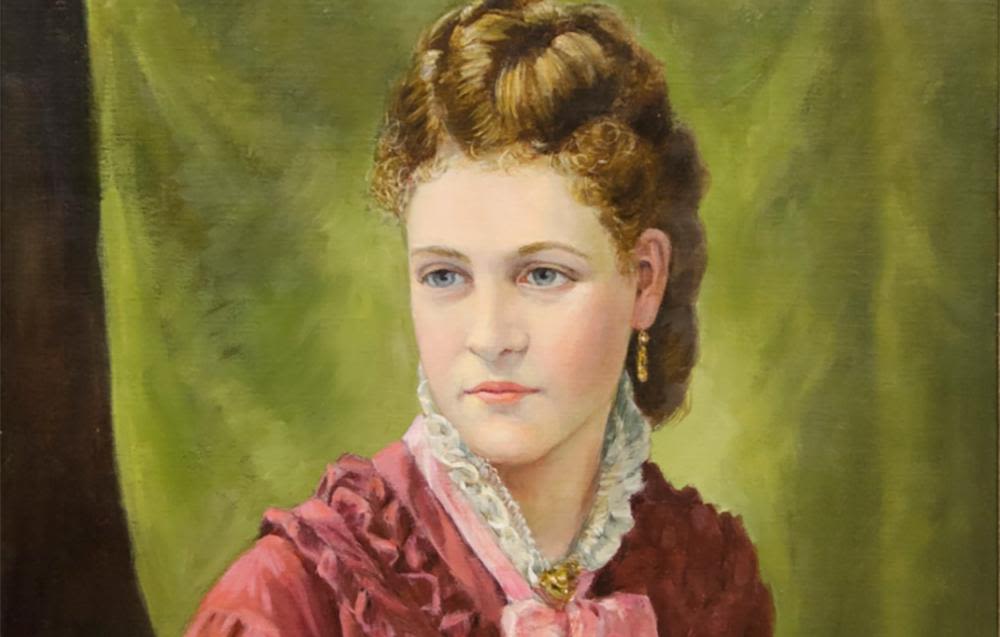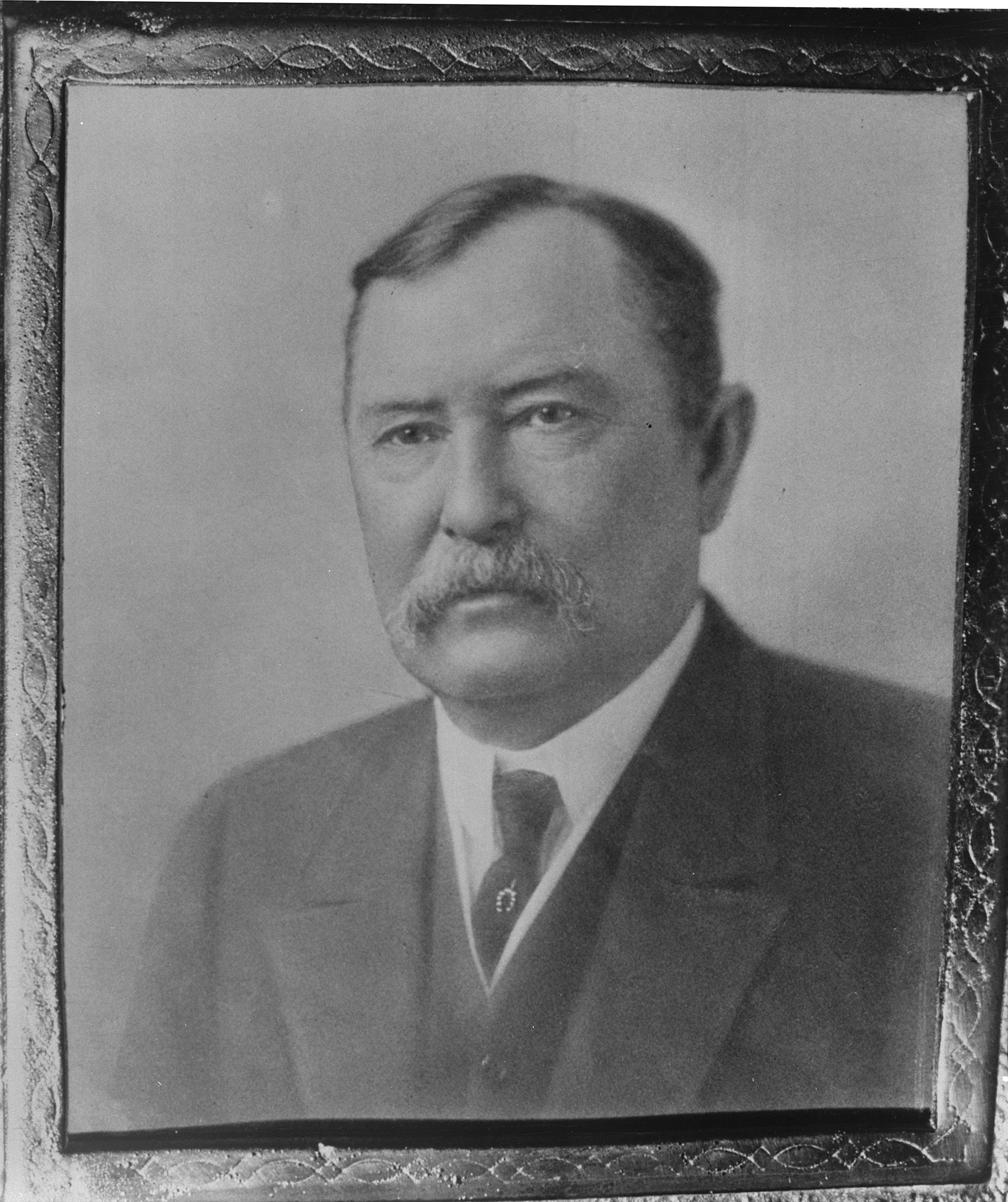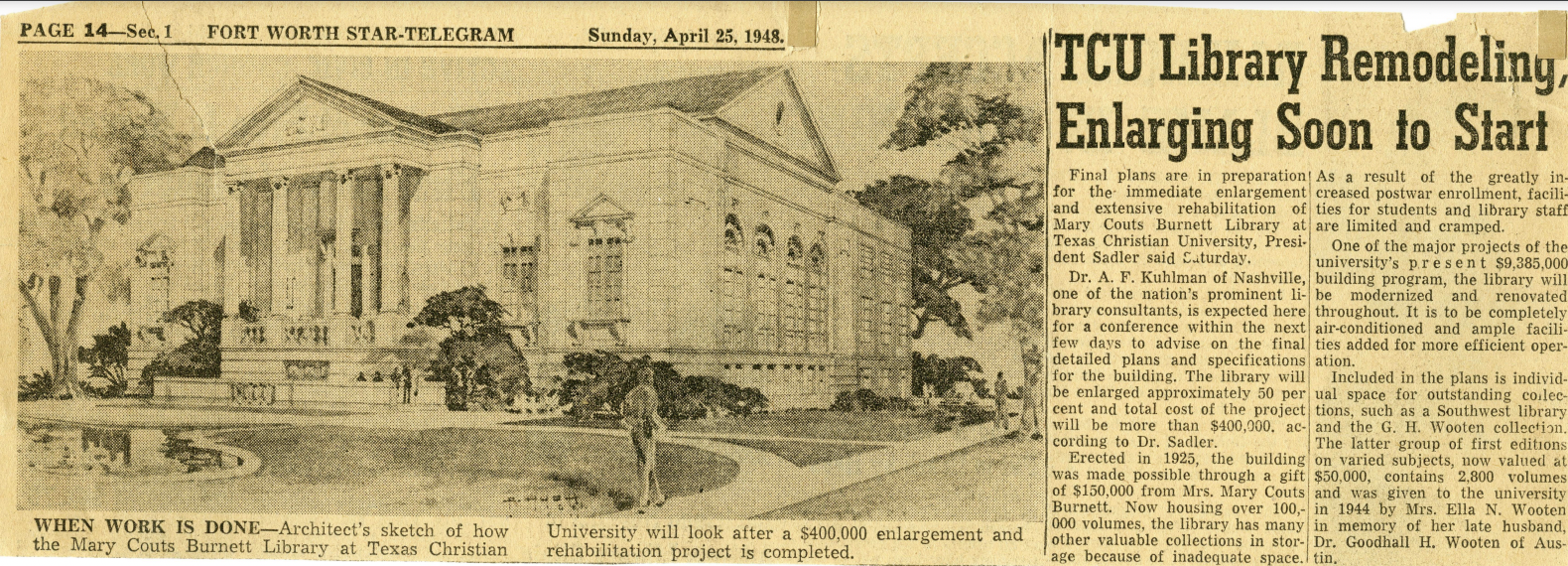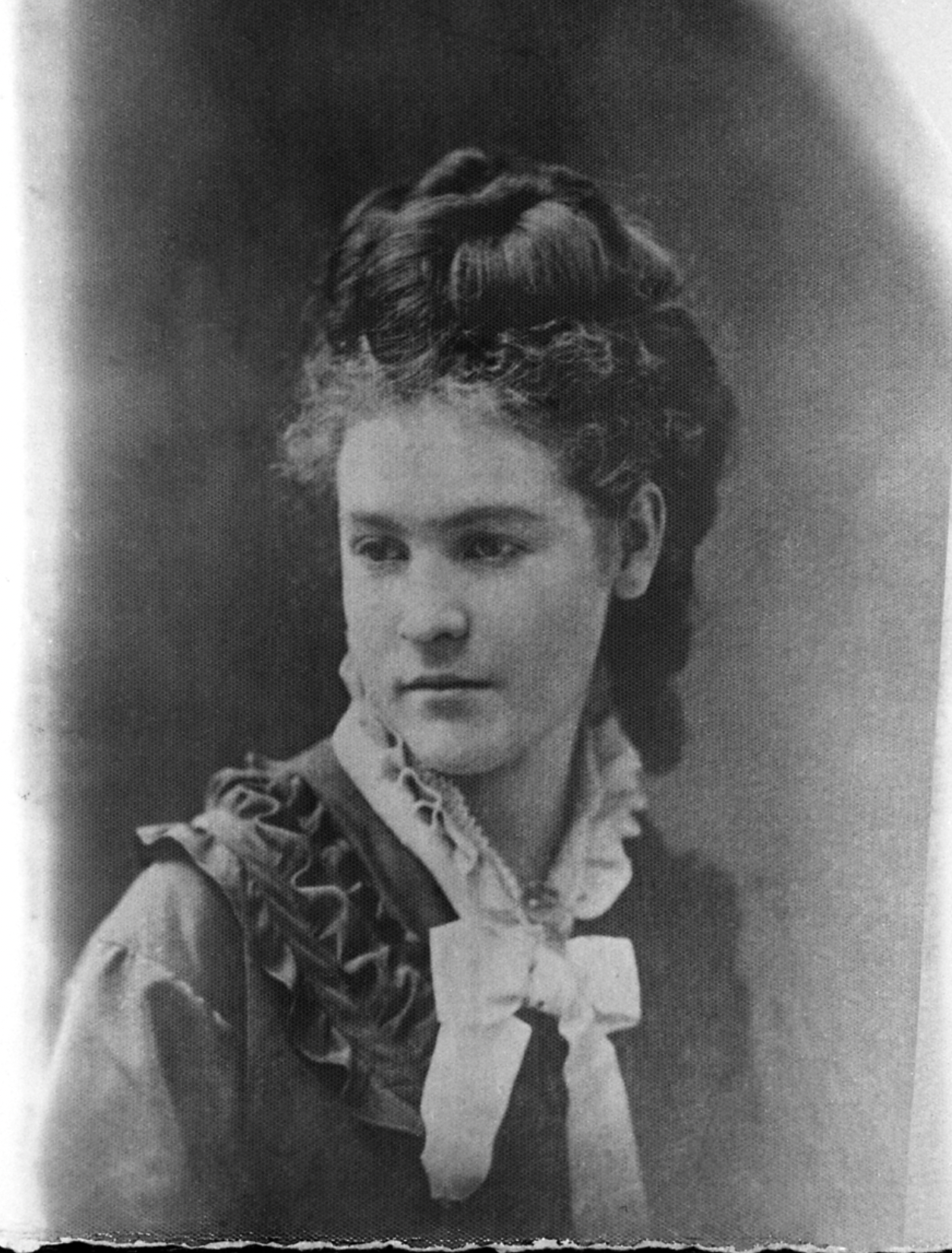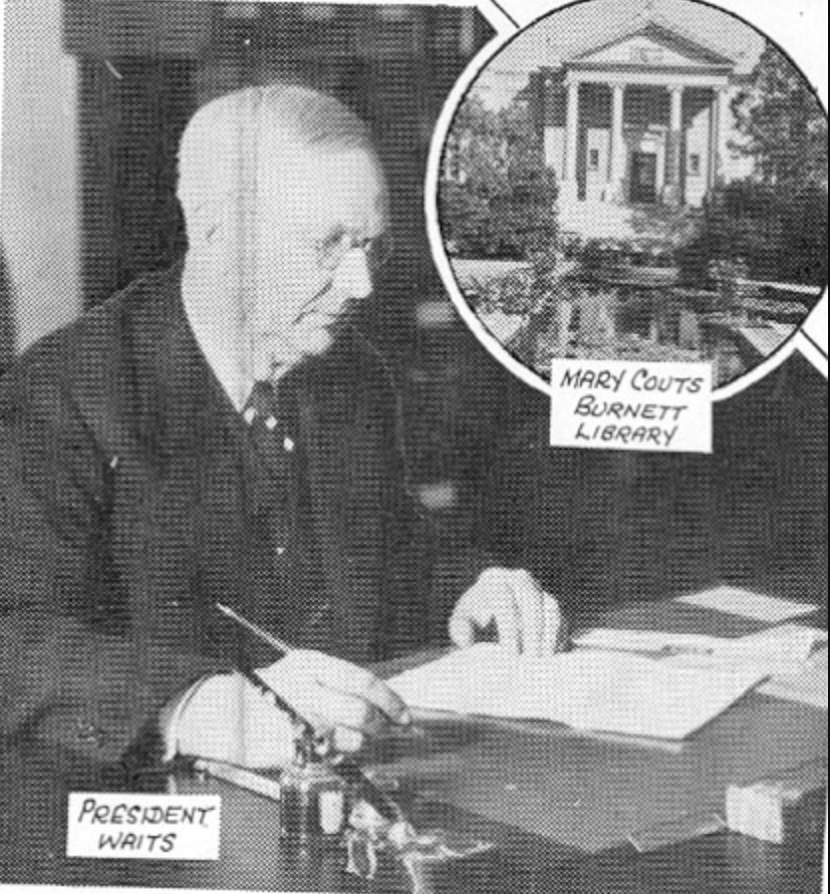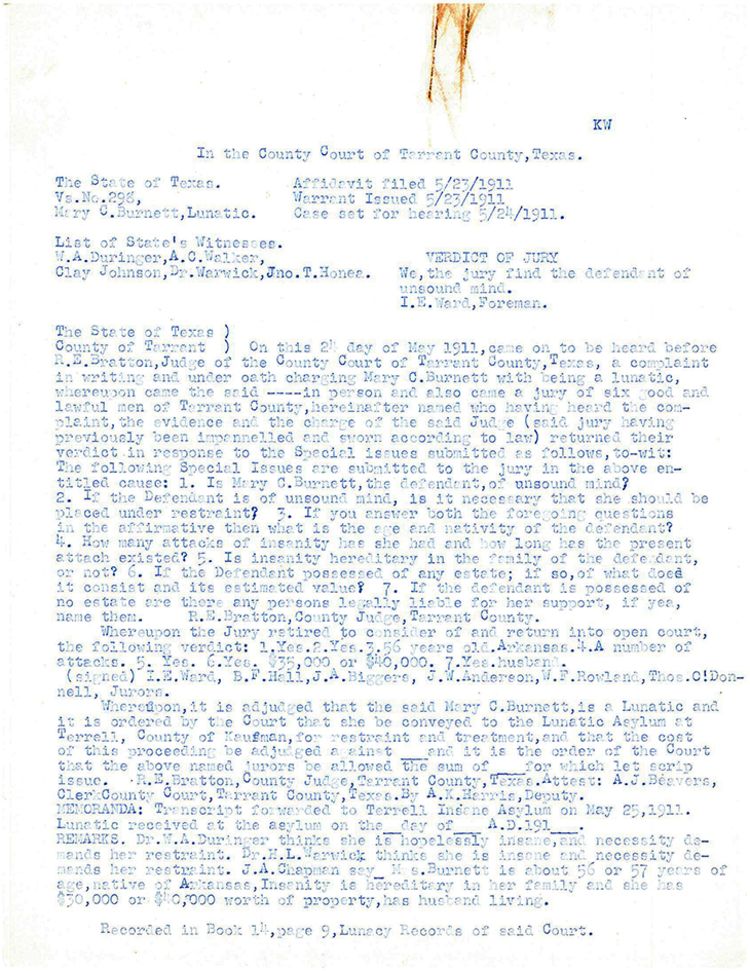A Donation to history: The unexpected trailblazer behind the Mary Couts Burnett Library
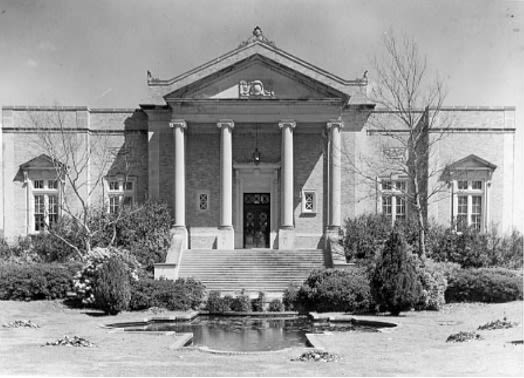
A portrait of Mary Couts Burnett can be found hanging in the TCU Library painted by Emily Guthrie Smith in 1984. (Courtesy of TCU Archives)
A portrait of Mary Couts Burnett can be found hanging in the TCU Library painted by Emily Guthrie Smith in 1984. (Courtesy of TCU Archives)
When she was 61 years old, her husband had her declared insane and held in a private home in Weatherford, Texas.
The way the story is told, Mary Couts Burnett thought her husband, Burk Burnett, was trying to kill her. His response was to have her committed.
On the day he died, she fled the home and returned to Fort Worth.
Burk Burnett left his fortune to his granddaughter instead of his wife, but Couts Burnett was undeterred.
She sued and was awarded half of the oil baron’s estate — $3 million, which she willed to TCU. Her name is now emblazoned on the library that looms over South University Drive.
The donation remains the largest in TCU’s history. In today's dollars it would amount to $72,324,549.
Over time both the library and the legacy of Mary Couts Burnett have evolved. The building is now a campus hub, anchoring the Intellectual Commons. Couts Burnett's life provides a look into the role of women — even those with wealth — in the 19th century.
She is remembered as a refined and cultured woman who lived a purposeful and heroic life.
Mary Couts Burnett believed in the pursuit of education for all
With no formal ties to TCU, some thought the large endowment was a surprise, but this is not entirely true. While it appeared random and somewhat of a shock to family members who desired to obtain some of the wealth, those who knew her said her decision was purposeful.
Her attorney William J. Slay described her as “benevolent,” and during his announcement to the university of the gift, TCU President Edward McShane Waits spoke of Mary Burnett Couts, saying, “her aim is to serve youth that it may realize its fullest possibilities," the Fort Worth Star Telegram reported in 1923.
Mary Saffell, senior archivist for TCU's special collections, said there is information that Couts-Burnett wanted to honor her son, Samuel Burk Burnett, Jr., who died when he was 20.
Still, some questioned why she chose Texas Christian University.
“She was not a member of the Christian Church, she had no children to attend TCU; she knew no university personnel. Mrs. Burnett had not even been solicited in university fund drives,” the Fort Worth Star-Telegram reported.
The Star-Telegram went on to report that her father admired TCU founder Addison Clark. Her attorney Slay and her physician Dr. Charles H. Harris also influenced her by speaking positively about TCU.
Additionally, the Star-Telegram reported that those who knew her said she had intended on making this type of donation for years. She considered different universities before deciding on TCU, in part "because of its non-sectarian character” and openness to diverse religions, the Fort Worth Star Telegram reported in1923.
An article in the Fort Worth Star Telegram on April 25, 1948 describes an additional expansion that will take place to follow Burnett's donation and includes a sketch of how what it will look like after construction. TCU Special Collections Digital Repository.
An article in the Fort Worth Star Telegram on April 25, 1948 describes an additional expansion that will take place to follow Burnett's donation and includes a sketch of how what it will look like after construction. TCU Special Collections Digital Repository.
A life far from simple
Before establishing her legacy at TCU, Couts Burnett was a mother.
Her only child died of a rare cancer in 1916.
He was remembered as “generous-minded,” wrote author Capt. Buckley B. Paddock in his book “History of Texas.” Even at a young age, Samuel Burnett had a selfless and generous personality that resembled his mother.
The Burnett marriage, already somewhat strained, became volatile after their son's death.
“The death of his [Mr. Burnett’s] son, who had received every advantage of training and possessed many of the best qualities of his ancestry, was the greatest sorrow of Mr. Burnett,” Paddock wrote.
Burnett's plan to leave his fortune to his granddaughter Anne prompted Couts Burnett to begin telling people he was going to kill her.
On May 24, 1911 a jury found her of an "unsound mind." Jurors answered "yes," to the court's question of if they believed her to be possessed. They also agreed that restraint was necessary.
A copy of the Couts-Burnett's "lunacy trial." The jury found declared her mentally insane no May 24, 1911. Tarrant County Archives.
A copy of the Couts-Burnett's "lunacy trial." The jury found declared her mentally insane no May 24, 1911. Tarrant County Archives.
TCU archivist Saffell said that at the time, divorce was still a bit taboo. But a husband could have his wife declared insane, thus maintaining his reputation but still separating. If convicted, women stood to lose children, livelihoods, reputations and — most significantly — control of their wealth in many cases.
There is little recorded of what was said in court during the trial, and Burnett's true intentions are not known. Nonetheless, when Couts Burnett was declared insane, her husband gained control over her significant fortune.
A toast to TCU's history
It's been 100 years since TCU President E. M. Waits announced the Couts Burnett endowment.
“Mrs. Burnett has surpassed any of the great business men in Texas in making a wise and sound distribution of her fortune,” said Waits.
She never saw the completed library. Couts Burnett died in 1925 after suffering a stroke. She was 68 years old.
TCU hosted a memorial and students — many female — gathered to pay tribute to her legacy.
The TCU yearbook published after her death was dedicated to her by the Class of 1925.
A copy of the first page with the dedication can be found displayed in the special collections area on the third floor of the library along with many other pictures, artifacts, and documents that have been given to the university to celebrate her legacy.
At the time of the official dedication in March of 1925, Eugenia Trinkle lauded the new building on the campus.
“Its gracious columned exterior, sunken garden and lily pond were campus hallmarks,” said Trinkle.
Since then, the TCU library has undergone more expansions and renovations. Today, the building that looms over South University Drive a staple of TCU’s campus.
Despite the renovations original structural components remain.
A flower bed marks the place of the original lily pond and its shape.
The original windows in the reading room remain. The chairs are new, but they were built to look identical to those in the original building.
Through all the changes to the library, the students remain. With their heads buried in books, fingers typing away on laptops, friends giggling in hushed whispers -- Mary Couts Burnett's legacy lives on.
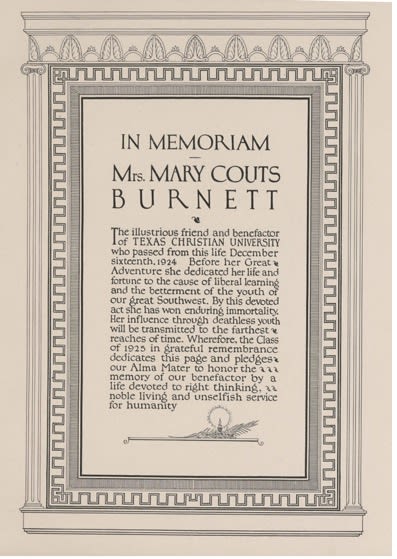
The dedication page in the 1925 Horned Frog yearbook praises Burnett's generosity to TCU. TCU Special Collections Digital Repository.
The dedication page in the 1925 Horned Frog yearbook praises Burnett's generosity to TCU. TCU Special Collections Digital Repository.
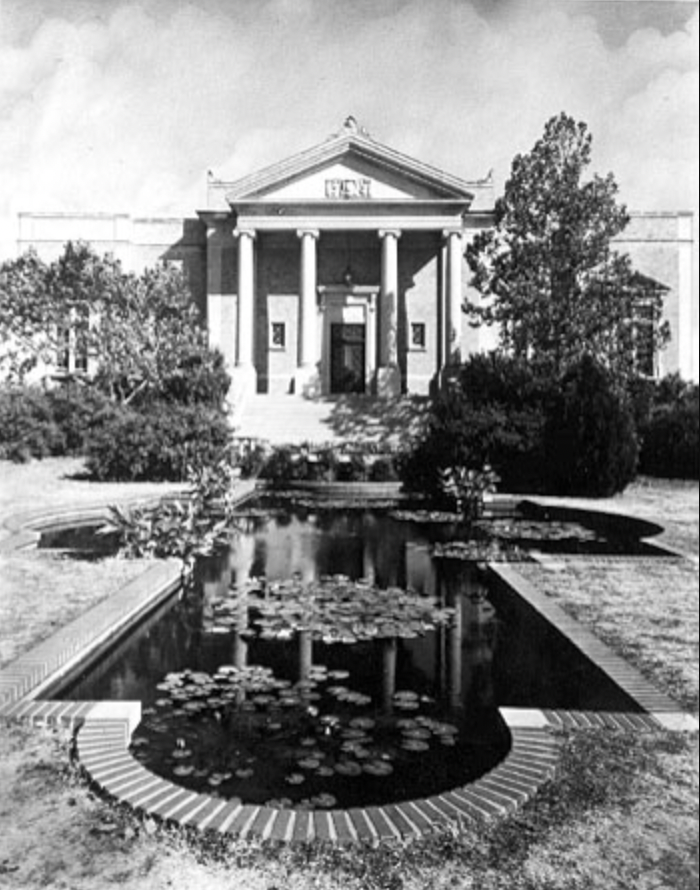
Photograph of the front of the Mary Couts Burnett Library in 1951 with the original lily pond. TCU Special Collection Digital Repository.
Photograph of the front of the Mary Couts Burnett Library in 1951 with the original lily pond. TCU Special Collection Digital Repository.

Front of the TCU library pictured in 2020 with flower beds whose shape resembles the original lily pond. Photo courtesy of Texas Christian University.
Front of the TCU library pictured in 2020 with flower beds whose shape resembles the original lily pond. Photo courtesy of Texas Christian University.

